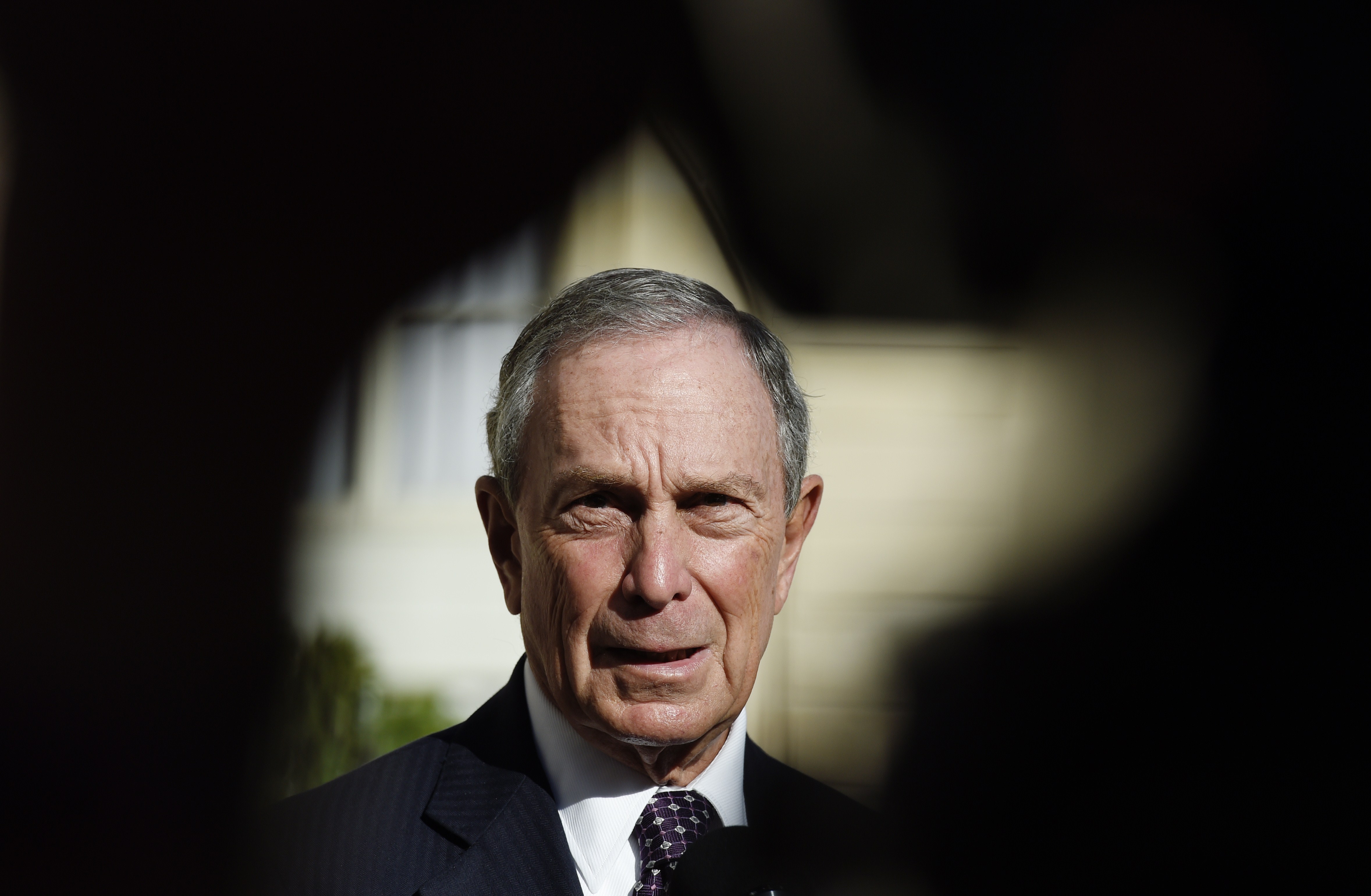A worst-case election scenario
What happens if Bloomberg runs, and none of the three candidates gets enough Electoral College votes?


A free daily email with the biggest news stories of the day – and the best features from TheWeek.com
You are now subscribed
Your newsletter sign-up was successful
As if this presidential season weren't sufficiently surreal, consider what might happen if Michael Bloomberg jumps into the race. The former New York City mayor has let it be known he's considering a third-party run if Bernie Sanders captures the Democratic nomination, to give the country a centrist alternative to a socialist scourge of Wall Street and the extremism of Donald Trump or Ted Cruz. In a three-way race featuring those candidates, the vote could be badly splintered, with no candidate getting the 270 Electoral College votes necessary to become president. What happens then? Something that has occurred just once in American history — back in 1824.
If no candidate gets the necessary Electoral College votes, the Constitution calls for the House of Representatives to select the president. The House delegation from each state casts one collective vote. Since Republicans have a House majority in 33 states, they'd presumably elect the Republican nominee — even if he came in second or third in the popular vote. It's also possible, however, that one of the presidential candidates could negotiate for House members' votes by promises of Cabinet positions or other political goodies. In 1824, that's exactly what happened. Andrew Jackson won the popular vote with 40 percent, but House Speaker Henry Clay put together a coalition for John Quincy Adams, who became president despite getting just 30 percent of the popular vote. The grateful new president then appointed Clay secretary of state — a deal Jacksonians called “the corrupt bargain.” Imagine something similar occurring this year, in a country already full of mad-as-hell voters. Yeeesh. There are two obvious takeaways from this scenario: The Electoral College is a loaded gun sure to go off again. And without anybody warning us, we may have all been transported to Bizarro World.
A free daily email with the biggest news stories of the day – and the best features from TheWeek.com
The Week
Escape your echo chamber. Get the facts behind the news, plus analysis from multiple perspectives.

Sign up for The Week's Free Newsletters
From our morning news briefing to a weekly Good News Newsletter, get the best of The Week delivered directly to your inbox.
From our morning news briefing to a weekly Good News Newsletter, get the best of The Week delivered directly to your inbox.
William Falk is editor-in-chief of The Week, and has held that role since the magazine's first issue in 2001. He has previously been a reporter, columnist, and editor at the Gannett Westchester Newspapers and at Newsday, where he was part of two reporting teams that won Pulitzer Prizes.
-
 Switzerland could vote to cap its population
Switzerland could vote to cap its populationUnder the Radar Swiss People’s Party proposes referendum on radical anti-immigration measure to limit residents to 10 million
-
 Political cartoons for February 15
Political cartoons for February 15Cartoons Sunday's political cartoons include political ventriloquism, Europe in the middle, and more
-
 The broken water companies failing England and Wales
The broken water companies failing England and WalesExplainer With rising bills, deteriorating river health and a lack of investment, regulators face an uphill battle to stabilise the industry
-
 Epstein files topple law CEO, roil UK government
Epstein files topple law CEO, roil UK governmentSpeed Read Peter Mandelson, Britain’s former ambassador to the US, is caught up in the scandal
-
 Iran and US prepare to meet after skirmishes
Iran and US prepare to meet after skirmishesSpeed Read The incident comes amid heightened tensions in the Middle East
-
 Israel retrieves final hostage’s body from Gaza
Israel retrieves final hostage’s body from GazaSpeed Read The 24-year-old police officer was killed during the initial Hamas attack
-
 China’s Xi targets top general in growing purge
China’s Xi targets top general in growing purgeSpeed Read Zhang Youxia is being investigated over ‘grave violations’ of the law
-
 Panama and Canada are negotiating over a crucial copper mine
Panama and Canada are negotiating over a crucial copper mineIn the Spotlight Panama is set to make a final decision on the mine this summer
-
 Why Greenland’s natural resources are nearly impossible to mine
Why Greenland’s natural resources are nearly impossible to mineThe Explainer The country’s natural landscape makes the task extremely difficult
-
 Iran cuts internet as protests escalate
Iran cuts internet as protests escalateSpeed Reada Government buildings across the country have been set on fire
-
 US nabs ‘shadow’ tanker claimed by Russia
US nabs ‘shadow’ tanker claimed by RussiaSpeed Read The ship was one of two vessels seized by the US military
